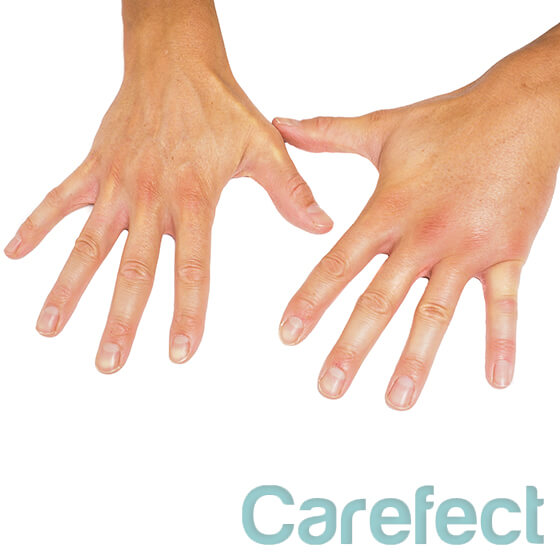While swelling, weight gain, or puffiness in certain areas may not always be a cause for concern, it can be a result of edema which may require necessary treatment.
Edema is a medical term for swelling in the body and can be a symptom of chronic medical conditions, which can be especially serious for seniors. Edema can manifest in the body in a variety of ways and can be located in a generalized way or a localized spot and can range from minor to severe.
Edema is often caused by medical conditions such as organ diseases and failure in the heart, liver, and lungs. The edema symptom is caused by excess fluid that leaks out of the small blood vessels and is trapped in the surrounding tissue. This excess fluid can be a result of a procedure, allergic reaction, change in the body’s chemical composition, or injury.
Edema in seniors can be at a higher risk because elders often perform lower activities levels and have poorer blood flow. This can also be increased by multiple chronic health conditions and associated medications. Seniors and caregivers should be mindful of the possible causes of edema in order to prevent its development which can cause severe symptoms. Some of the symptoms can include swelling, puffiness, discolored skin, stiff joints, drastic weight changes, and pitting edema which can cause dimples on the skin.
Types of Edema
- Peripheral Edema is the most common type of edema which occurs in the limbs and extremities. This produces swollen limbs such as swollen legs, ankles, feet or swollen arms, and hands.
- Generalized Edema predominantly affects the entire body and is caused by fluid retention. Gravity will also primarily affect the limbs, such as the legs, because of the downward force of gravity.
- Pulmonary Edema is caused by fluid accumulating in the lungs.
- Lymphedema occurs when the lymphatic system is malfunctioning.
- Corneal Edema affects vision because of fluid retention in the cornea.
Managing Edema at Home
Treating edema is more effective when you are focusing on the underlying cause as edema is only a symptom of a more serious medical condition. Making an appointment with your primary care physician in order to identify what is causing the edema is an important first step. Organ disease and failure are possible chronic conditions that may cause edema and, in that case, receiving treatment and diagnosis from your primary care physician is critical to managing the symptoms. While the first step to treating edema is working together with your doctor, there are lifestyle changes you can make that can have a positive effect to lessen the severity of the edema. Seniors and their caregivers would benefit from making these lifestyle changes in order to prevent further discomfort.
Active Lifestyle
One of the causes of edema is a lack of movement and poor circulation, therefore, one of the easiest strategies you can implement is integrating more movement into your day. While using the body parts that are affected by edema may be uncomfortable, it will help reduce swelling and encourage the elimination of excess fluid by improving circulation. Movement for the sake of circulation does not need to be excessive or difficult as small gentle movements and a mild movement routine will strengthen your cardiovascular system and improve blood and lymph circulation.
Healthy Eating
Nutrition is the fundamental building block of our body’s makeup and serves an important function in keeping us happy and healthy. Integrating foods with high sources of vitamins, minerals, fiber, and antioxidants can improve overall body health and functioning. Looking at your diet and considering what changes you can make can be a key component of managing symptoms. When eliminating excess fluid, you will want to consider integrating foods that possess diuretic properties. Diuretic properties will help balance the fluid buildup and minimize the symptom of edema. The following foods have diuretic properties: pineapple, grapes, leafy greens, green beans, asparagus, pumpkin, leeks, parsley, onions, and garlic. Salt is also an important mineral to consider when eliminating excess fluid because while the body needs salt to function properly, it can also cause water retention. The daily maximum of sodium is 2300mg and those who are suffering from water retention and excess fluids should aim to be lower than that. Read nutrition labels carefully and be mindful of overall salt intake. A nutritionist or dietitian can help advise a diet plan with balanced and nutritious meals that are also low in sodium.
Elevation
Elevation is the simplest key to combating gravity and the pull of fluid down to affected limbs. Encouraging elevation and resting with the affected extremities above the heart can help prevent the pooling of all fluids and improve overall circulation. The strategy of elevation will depend on which limbs are affected but encouraging seniors to move their bodies in a way that elevates those limbs above the heart whether that is through assistive devices or yoga, can help increase circulation and decrease swelling.
Edema can be a serious concern and should be treated primarily by a physician. Ensure that you are connecting with your doctor if you notice generalized or localized swelling as they can be due to the medications that your doctor prescribed for you to take. If your doctor recommends some strategies to practice at home in order to minimize the symptom, a personal care worker can help your elderly loved one by increasing their movement, implementing a low sodium diet, and encouraging elevation of the affected limbs.
If you found this article useful, we also recommend these related posts in our Home Care Services blog:

